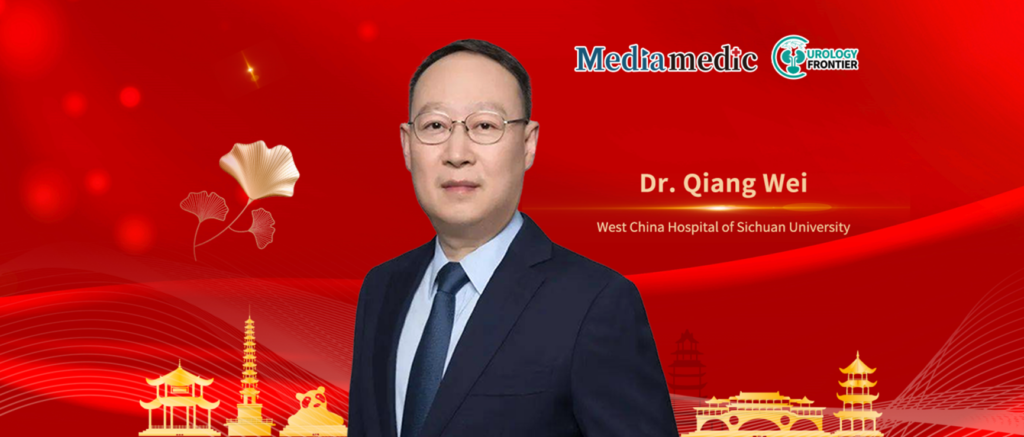
Editor's Note: From November 4–10, 2024, the 8th West China Uro-Oncology Tianfu Academic Conference and the 10th Urological and Male Reproductive Oncology Annual Conference of the Sichuan Anti-Cancer Association were successfully held in Chengdu. This event shared the latest domestic and international advancements in clinical data, research findings, complex case discussions, and cutting-edge diagnostics and treatment. Following the conference, Oncology Frontier invited the conference chair, Dr. Qiang Wei from West China Hospital of Sichuan University, to discuss the highlights of the event, the development of urological oncology in China, and the value of multidisciplinary treatment (MDT).Oncology Frontier:This conference featured an impressive range of sessions. What considerations went into its design? Could you share some of the key highlights and areas of focus?
Dr. Qiang Wei:The West China Uro-Oncology Tianfu Academic Conference is one of our annual key events. Since its inception, it has been successfully held eight times. The conference takes place annually in early November, combined with the Sichuan Anti-Cancer Association Urological and Male Reproductive Oncology Annual Conference. It has the following main features:
First, the conference brings together many renowned domestic and international experts and scholars. The lineup is robust and comprehensive, involving leaders and specialists from nearly all major urological academic organizations in China, such as the Chinese Urological Association (CUA), Chinese Medical Doctor Association Urological Surgeon Branch (CUDA), Chinese Anti-Cancer Association (CACA), and the Chinese Society of Clinical Oncology (CSCO). Additionally, several prominent international experts from institutions like the Mayo Clinic, Cleveland Clinic, University of Southern California, Duke University, and Canada participated. These guests’ expertise and academic influence are world-class, providing a rich academic feast for this year’s conference.
Second, the content focused on summarizing the latest advancements in urological oncology in 2024. A systematic review of three major cancer types—renal cancer, bladder cancer, and prostate cancer—was conducted, aiming to equip urological oncologists, especially surgeons, with the latest knowledge and technical updates.
Finally, the conference emphasized the importance of multidisciplinary collaboration. Participants included not only urologists but also professionals from urological imaging, pathology, chemotherapy, and radiotherapy. This collaborative model facilitates knowledge exchange and technical integration across disciplines, providing patients with more comprehensive and effective treatment plans.
Oncology Frontier:This year, China made several advances in urological oncology. You shared highlights from “The Voice of Urological Oncology in China 2024” at the conference. Which research achievements do you think might change clinical practice in the future?
Dr. Qiang Wei:In recent years, China has made remarkable progress in basic and clinical research, gradually gaining attention in the international academic community. However, fundamental changes in clinical practice in China are still a long way off. Currently, many studies remain fragmented and lack systematic approaches, with limited original innovation. Much of the work is still in the imitation stage, presenting significant challenges for China’s urological surgeons and researchers. There is a long and arduous journey ahead.
Oncology Frontier:After years of development, Chinese research and approaches in urological oncology are gradually entering the international stage. How can we further advance to establish Chinese approaches as global standards?
Dr. Qiang Wei:Despite some progress in basic and clinical research, there remains a considerable gap compared to the international top-tier level. This places significant responsibility on us to conduct original and transformative research while steadily advancing translational work. Only through these efforts can we gradually elevate ourselves to the world’s leading ranks and keep pace with global developments. Establishing Chinese approaches as international standards is an ambitious goal that will require time and persistent effort to achieve.
Oncology Frontier:This conference’s MDT discussions were a key highlight. How do you view the value of MDT in diagnosing and treating urological oncology?
Dr. Qiang Wei:Over the past decade, multidisciplinary comprehensive treatment (MDT) for urological oncology in China has experienced significant development, drawing on the experiences of European and American countries and gradually being implemented in large urological oncology centers. This treatment model provides patients with comprehensive and systematic care, making it highly valuable for wider adoption.
During the Tianfu Uro-Oncology Forum, we particularly emphasized the importance of multidisciplinary collaboration. In the “MDT Duel” session, six top urological oncology teams from China engaged in in-depth case discussions on prostate cancer, urothelial cancer, and renal cancer, presenting insightful treatment strategies. I believe that such exchanges and collaborations will further promote the broad application and development of MDT in the field of urological oncology.
Dr. Qiang Wei
- Director, Center for Urological Diseases, West China Hospital, Sichuan University
- Director, Department of Urology, West China Hospital, Sichuan University
- Vice Chair, Chinese Urological Association (CUA)
- Vice President, Chinese Medical Doctor Association Urological Surgeon Branch (CUDA)
- Vice Chair, CSCO Prostate Cancer and Renal Cancer Expert Committees
- Vice Chair, Male Reproductive Tumor Committee, Chinese Anti-Cancer Association
- Director, Sichuan Clinical Research Center for Kidney and Urological Diseases
- President, Sichuan Association of Robotic Surgery Physicians
- Chair, Urological and Male Reproductive Oncology Committee, Sichuan Anti-Cancer Association
- Chair, Urology Committee, Chengdu Medical Association
- Recipient of the CUA “Golden Cystoscope Award,” Wu Jieping Urological Medicine Award, and the Global Chinese Urological Surgeon Lifetime Achievement Award


